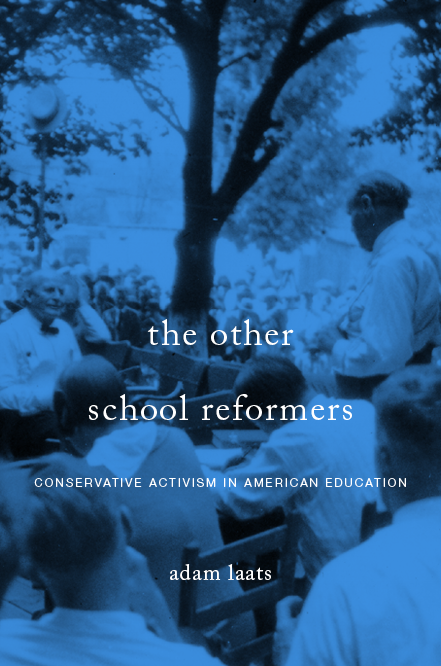The world of evangelical higher education is reeling at the revelations from Wheaton College in Illinois. Five football players have been charged with felony assault in a brutal hazing incident. The incident reminds us of the long tensions between aggressive, win-at-any-cost college athletics and the behavioral rules of evangelical colleges.

- Rah rah.
It’s easy enough to forget nowadays, when big evangelical schools like Liberty are making their mark in the competitive world of college athletics. Since the beginning, however, as I detail in my new book, thoughtful evangelicals wondered if the pressures that inevitably accompanied sports success threatened the mission of their religious institutions.
The story from Wheaton is gruesome. A freshman football player was attacked in his dorm room by senior teammates. His wrists were duct-taped together and he was thrown into the back of a car. His teammates piled in on top of him, threatening him with sexual assault. As Chris Gehrz has pointed out, the language they used—crudely blaring that Muslims commonly engaged in bestiality and sexual aggression—points out the deep structural flaws that can cocoon students at evangelical schools. Even worse, Wheaton seemed to be willing to sweep this assault under the rug, letting the players keep playing after they performed some community service and wrote apologetic essays.
The victim ended up abandoned half-naked in a field with torn muscles in both shoulders. He immediately left the school.
Sadly, there’s nothing unique about this sort of brutal collegiate assault, done under the banner of team-building “hazing.”
Schools like Wheaton, however, have built their reputation as different sorts of schools, schools that hold their students to a higher standard of conduct. As long as there have been evangelical colleges and universities of this sort, however, there have been deep tensions about athletic programs. For many schools, hosting winning sports programs are an intrinsic part of being a “real” college.
Back in 1944, for example, one Wheaton student wrote home in excitement that the new sports program (it only started in 1939 at Wheaton) gave her school a tradition to embrace. As she prepared to head to the weekly football game, she told her mother that the game against rival North Central College was a big deal on campus. “You see,” she explained to her mother,
Wheaton is to N.C. what Army is to Navy, or Harvard is to Yale.
Even in the sequestered world of the Moody Bible Institute, students glowered at their relative lack of athletic success. In 1945, one student complained that MBI teams should earn more wins. In spite of their large student body and their good athletic facilities, this student wrote in the student paper, the MBI “A” team still lost at basketball to the Wheaton “Bs.”
There had always been anxiety about the behavioral implications of athletics. In its first years, for example, Bob Jones College (it became Bob Jones University only in 1946) fielded teams under the name the “Swamp Angels.” The school’s leaders soon canceled the athletic program, however. As Bob Jones Jr. later remembered,
We found the people were betting on our games, littering our campus with whiskey bottles.
Even in that first generation of evangelical higher education back in the 1920s, critics charged that school leaders cared more about sports success than soul-saving. The short-lived and ill-fated fundamentalist experiment at Des Moines University demonstrated this conundrum better than any other school. When Toronto’s fundamentalist firebrand T. T. Shields stormed into town and took over the school, he fired all the faculty and forced them to reapply. Every potential faculty member went through an intrusive personal interview regime to get their jobs back. The entire faculties of the science and math departments quit in disgust. But not the football coach. Observers quickly noted that the coach was welcomed back in spite of his open cynicism about evangelical religion. When asked if he had been converted, for example–“born again”—the coach reputedly sneered, “Yeah, lots of times.”
Even elite Wheaton can’t claim innocence about questions of athletic influence. As soon as it started its athletics programs in the 1930s, critics on and off campus charged that football coach Fred Walker was not an appropriate evangelical role model. Walker was accused of a non-Christian tough-guy approach to coaching, cussing at players and using foul language to belittle them. In spite of all the charges, Wheaton kept Walker on.
Even back then, the college wanted to be seen as a real college. It wanted students to think of Wheaton as more than just a dumpy second-rate church school. Part of the package, since the very beginning, was a game-winning athletics program.
The behavior of students and administrators in this recent assault are nothing new. They only remind us of the ever-present tension at evangelical colleges like Wheaton. Like every school, Wheaton gives its athletes too much leeway. The results are often criminal and catastrophic.





Neil Rickert
/ September 21, 2017The football assault is horrific. But what bothers me most, is that Wheaton apparently tried to cover it up.
Adam Laats
/ September 21, 2017Or even more scary, to my way of thinking, is that the administration seemed to think that their slap on the wrist was sufficient.
Dan
/ September 21, 2017Was there a racial element involved? I don’t understand how the “Muslim” comments figured into the assault.
Evangelical/Fundamentalist cultures support toxic masculinity with very open aggression and violence as long as it is channeled into morally acceptable forms (sports, military), but really egregious behavior from obviously not very sanctified coaches and other leaders is also excused as long as they are winners. Same as with any “secular” organization, but maybe less so today.
Adam Laats
/ September 21, 2017Yeah, that’s one of the weirdest parts of the story. The Tribune coverage says that the alleged attackers drove the victim around blindfolded, playing what they thought was Arab music, saying that they were Islamic terrorists and they they loved to rape goats. They threatened to use the victim as their “goat.”